Senior Rabbit Care Guide: 7 Essential Tips for Aging Bunnies
Introduction:
As your beloved bunny companion enters their golden years, providing exceptional care becomes more crucial than ever. This comprehensive senior rabbit care guide will equip you with the knowledge and strategies needed to ensure your aging rabbit enjoys a comfortable, healthy, and enriching lifestyle. Whether you’re a first-time senior rabbit owner or looking to enhance your current care routine, this senior rabbit care guide offers evidence-based insights and practical solutions tailored to meet the unique needs of elderly rabbits. Following this senior rabbit care guide will transform how you approach your bunny’s golden years.
Most domestic rabbits are considered seniors when they reach 5-6 years of age, though smaller breeds may age more quickly, while larger breeds might not show senior signs until 7-8 years. Understanding the aging process and implementing proper care protocols can significantly improve your bunny’s quality of life and potentially extend their lifespan. This senior rabbit care guide emphasizes the importance of early recognition and proactive management of age-related changes, making it an essential resource for any rabbit owner.
Table of Contents
Essential Products for Senior Rabbits
Comfort & Mobility
- Orthopedic pet beds – Memory foam or gel-filled for joint support
- Heated pet pads – Safe, low-temperature heating for arthritic rabbits
- Non-slip rugs/mats – Yoga mats or specialized rabbit flooring
- Fleece blankets – Soft bedding for comfort and warmth
- Pet ramps – Low-angle ramps for easy access to favorite spots
- Low-entry litter boxes – Easier access for mobility-limited rabbits
Nutrition & Feeding
- Senior rabbit pellets – Age-appropriate formulas with joint support
- Timothy hay (soft cuts) – Easier to chew for dental issues
- Shallow water bowls – Wide, heavy bowls for easy drinking
- Elevated food dishes – Reduces neck strain during eating
- Puzzle feeders – Mental stimulation during meal times
- Critical Care formula – For appetite support and recovery
Health Monitoring
- Digital pet scale – Weekly weight monitoring
- Nail clippers – Rabbit-specific nail trimming tools
- Soft-bristle brushes – Gentle daily grooming
- Pet thermometer – Digital rectal thermometer for health checks
- Syringe feeders – For medication or supplemental feeding
- First aid kit – Basic supplies for minor injuries
Grooming & Hygiene
- Waterless shampoo – For spot cleaning when bathing isn’t safe
- Sanitary clippers – For trimming around hindquarters
- Cornstarch powder – For moisture absorption and comfort
- Gentle pet wipes – For daily cleaning assistance
- Slicker brush – For preventing mats in long-haired breeds
Environmental Enrichment
- Low tunnels – Easy-access hideaways
- Soft toys – Comfort items for emotional support
- Foraging mats – Mental stimulation without high impact
- Timothy hay cubes – Treat and enrichment combination
- Cardboard castles – Easy-to-navigate play structures
Medical Supplements
- Glucosamine supplements – Joint health support (vet-approved)
- Probiotic supplements – Digestive health maintenance
- Vitamin C tablets – If recommended by the veterinarian
- Pain relief medications – Prescription arthritis treatments
- Digestive enzymes – For sensitive senior stomachs
Emergency Supplies
- Simethicone drops – For gas emergencies
- Electrolyte solution – For dehydration support
- Recovery food – High-calorie nutrition paste
- Emergency carrier – Easy-load transport for vet visits
- Heating pads – For shock or hypothermia
Specialized Equipment
- Baby gates – To limit access to dangerous areas
- Night lights – LED lighting for vision-impaired rabbits
- Humidifier – For respiratory comfort
- Air purifier – Reduces allergens and dust
- Temperature monitor – Maintains optimal environment
Understanding the Senior Rabbit Aging Process
Before diving into our senior rabbit care guide essentials, it’s important to recognize how aging affects rabbits differently from other pets. Senior rabbits experience gradual changes in their physical capabilities, metabolism, and behavioral patterns. These changes aren’t necessarily signs of illness but rather natural adaptations that require thoughtful adjustments to their care routine. Any comprehensive senior rabbit care guide must address these fundamental changes to provide effective support.
Research from veterinary specialists indicates that senior rabbits commonly develop arthritis, dental issues, and digestive sensitivities. Their immune systems may become less robust, making them more susceptible to infections and environmental stressors. Additionally, cognitive changes can occur, affecting their spatial awareness and routine preferences. Understanding these challenges is fundamental to implementing any successful senior rabbit care guide.
The key to successful care lies in proactive monitoring and gradual adaptations rather than reactive treatments. By implementing the strategies outlined in this senior rabbit care guide, you’ll be better positioned to identify potential issues early and address them before they become serious health concerns. Remember that this senior rabbit care guide serves as your roadmap to providing optimal care throughout your bunny’s golden years.
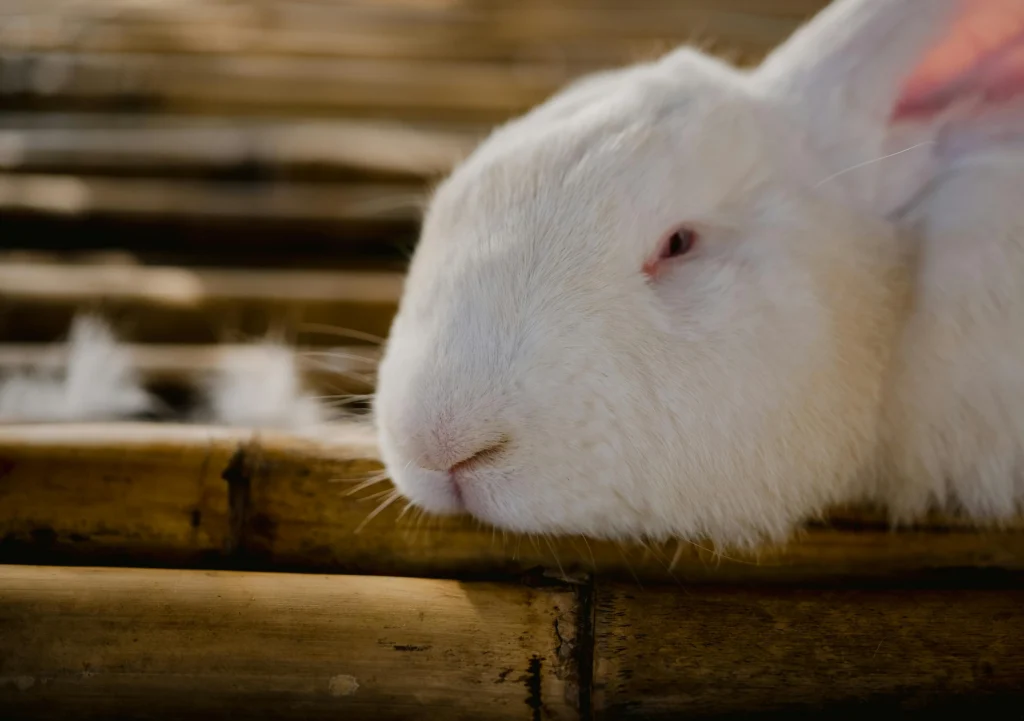
1. Optimize Their Living Environment for Comfort and Accessibility
Creating an age-appropriate living space is the foundation of effective care and the first essential element of our senior rabbit care guide. As rabbits age, their mobility decreases, making it essential to redesign their environment for maximum comfort and easy navigation. This senior rabbit care guide tip forms the cornerstone of successful aging bunny management.
Flooring Modifications: Replace wire-bottom cages with solid flooring covered in soft, non-slip materials. Senior rabbits often develop sore hocks (pododermatitis), and hard surfaces can exacerbate this condition. Consider using fleece blankets, yoga mats, or specialized rabbit-safe rugs that provide cushioning while maintaining good traction. This senior rabbit care guide recommendation helps prevent painful foot conditions.
Accessibility Improvements: Lower food and water dishes to reduce neck strain. Install ramps leading to favorite resting spots or litter boxes if your senior rabbit struggles with jumping. Many aging rabbits appreciate having multiple feeding stations throughout their living area to minimize travel distance.
Temperature Regulation: Senior rabbits have more difficulty regulating body temperature. Provide cozy hiding spots with extra bedding during colder months and ensure adequate ventilation during warmer periods. Heated pet pads (designed for rabbits) can offer additional comfort for arthritic joints.
Litter Box Adaptations: Choose litter boxes with lower sides for easier entry and exit. Place additional litter boxes in areas where your rabbit spends most of their time. This senior rabbit care guide modification prevents accidents and reduces stress associated with mobility challenges.
2. Adjust Their Diet for Senior Nutritional Needs
Proper nutrition forms the cornerstone of any comprehensive senior rabbit care guide and represents the second crucial element of optimal senior care. As rabbits age, their digestive systems become more sensitive, and their nutritional requirements may shift significantly. This section of our senior rabbit care guide addresses the critical dietary adjustments needed for optimal health.
High-Quality Pellets: Choose pellets specifically formulated for senior rabbits, which typically contain adjusted fiber levels and added joint-supporting nutrients. The general recommendation is 1/4 cup of pellets per 5 pounds of body weight, but senior rabbits may need individualized portions based on their activity level and body condition. Following this senior rabbit care guide recommendation ensures optimal nutrition.
Unlimited Timothy Hay: Continue providing unlimited access to high-quality timothy hay, which remains essential for dental health and digestive function. However, you might need to offer softer, finer cuts if your senior rabbit develops dental issues that make chewing difficult.
Vegetable Modifications: While fresh vegetables remain important, senior rabbits may benefit from slightly warmed or softer vegetables that are easier to digest. Introduce new vegetables gradually, as senior digestive systems can be more sensitive to dietary changes.
Hydration Support: Ensure constant access to fresh water. Some senior rabbits prefer shallow, wide water bowls over bottles. Adding a small amount of unsweetened fruit juice to water can encourage drinking if your rabbit shows signs of mild dehydration.
Weight Management: Monitor your senior rabbit’s weight closely. Some may lose weight due to dental problems or decreased appetite, while others might gain weight from reduced activity. This senior rabbit care guide emphasizes the importance of working with your veterinarian to establish an ideal weight maintenance plan.
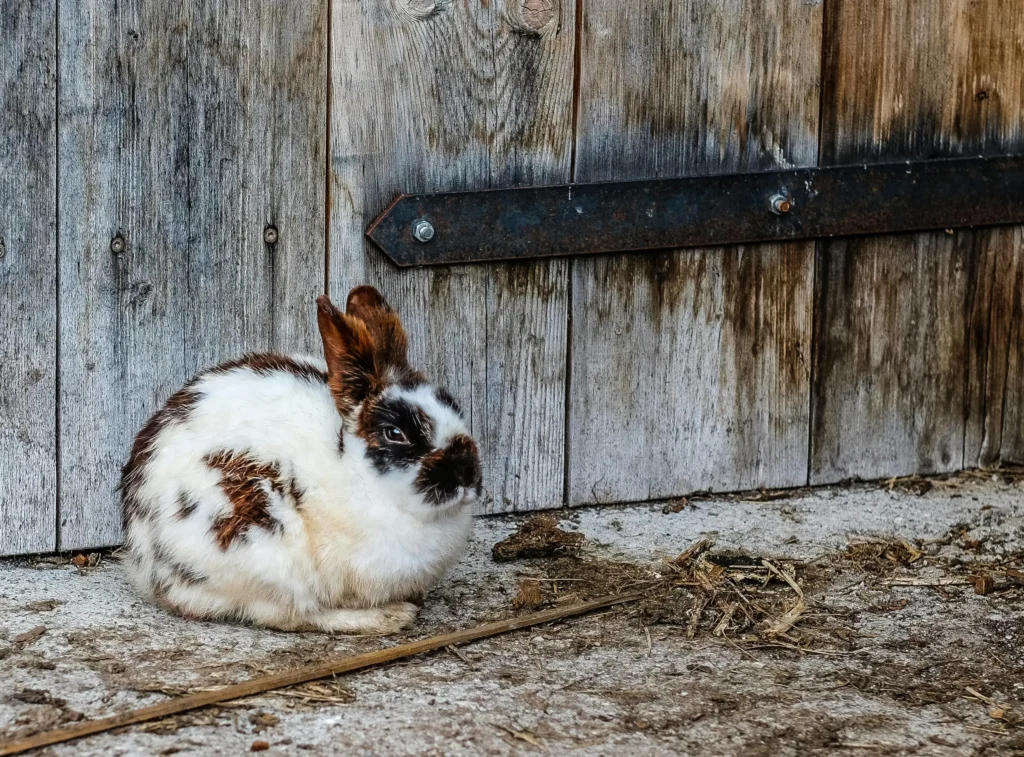
3. Implement a Gentle Exercise and Mobility Program
Maintaining appropriate activity levels is crucial for the successful implementation of any senior rabbit care guide, as regular movement helps preserve joint flexibility, muscle tone, and mental stimulation. However, the approach must be modified to accommodate age-related physical limitations. This section of our senior rabbit care guide focuses on safe, effective ways to keep your aging bunny active without causing strain or injury.
Low-Impact Activities: Encourage gentle movement through strategically placed toys and treats that motivate short-distance travel. Avoid high-impact activities like jumping onto tall surfaces, instead, provide gradual inclines or steps. This senior rabbit care guide strategy promotes healthy movement while protecting aging joints.
Physical Therapy Techniques: Gentle massage and passive range-of-motion exercises can help maintain joint flexibility. Many senior rabbits enjoy light brushing sessions that also serve as bonding time while promoting circulation.
Environmental Enrichment: Create engaging spaces with tunnels, hiding spots, and foraging opportunities that encourage natural behaviors without demanding excessive physical exertion. Rotating toys and rearranging spaces periodically can provide mental stimulation that motivates gentle exploration.
Swimming Alternatives: While rabbits don’t swim, some senior rabbits benefit from warm, shallow water therapy under veterinary guidance for severe arthritis cases. This specialized treatment should only be conducted by experienced professionals.
4. Establish Regular Health Monitoring and Veterinary Care
Proactive health monitoring is perhaps the most critical component of any senior rabbit care guide and represents the fourth essential element of comprehensive senior care. Early detection of health issues can make the difference between successful treatment and serious complications. This essential element of our senior rabbit care guide cannot be overstated in its importance for maintaining your bunny’s health and well-being.
Monthly Health Assessments: Conduct regular at-home health checks, including weight monitoring, dental examinations, and mobility assessments. Keep a health journal documenting any changes in eating habits, bathroom patterns, or behavior. This senior rabbit care guide practice helps identify subtle changes before they become serious issues.
Veterinary Visit Schedule: Senior rabbits should receive veterinary examinations every 4-6 months rather than the standard annual visits. This increased frequency allows for early detection of age-related conditions like dental disease, heart problems, or gastrointestinal issues. Regular veterinary care is a non-negotiable aspect of any effective senior rabbit care guide.
Diagnostic Testing: Regular blood work can help identify kidney dysfunction, liver changes, or other internal issues before they become symptomatic. Many veterinarians recommend baseline senior blood panels at age 5-6, with follow-ups based on individual risk factors.
Preventive Treatments: Discuss preventive pain management options with your veterinarian, especially for rabbits showing early signs of arthritis. Many senior rabbits benefit from joint supplements containing glucosamine and chondroitin.
Emergency Preparedness: Establish relationships with emergency veterinary clinics familiar with rabbit care, as senior rabbits may experience sudden health crises requiring immediate attention.
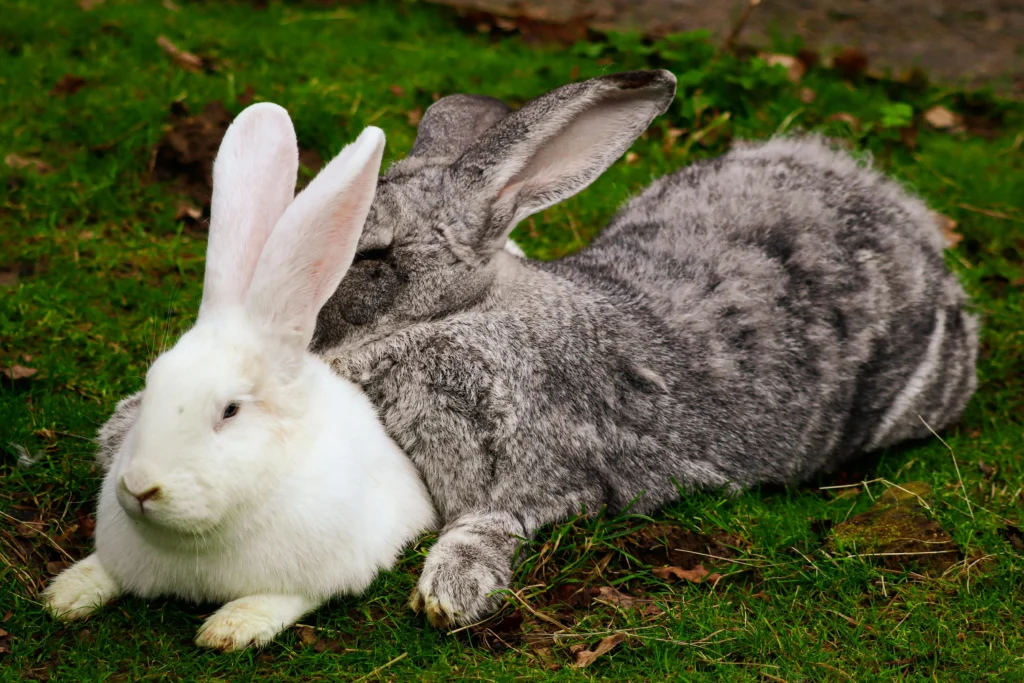
5. Address Grooming and Hygiene Needs
Senior care requires special attention to grooming and hygiene, as aging rabbits often struggle to maintain their natural cleaning routines effectively. This grooming-focused section of our senior rabbit care guide addresses the increased needs that come with advancing age and decreased mobility. Proper grooming becomes even more critical when following a senior rabbit care guide.
Daily Brushing: Increase brushing frequency to daily sessions, as senior rabbits may have difficulty reaching all areas for self-grooming. Use soft brushes appropriate for their coat type and be gentle around sensitive areas. This senior rabbit care guide recommendation helps prevent matting and maintain skin health.
Nail Care: Senior rabbit nails may grow faster and become more brittle with age. Schedule nail trims every 4-6 weeks and monitor for overgrowth that could affect mobility. Consider having professional grooming if your rabbit becomes stressed during nail care.
Dental Hygiene: While you cannot brush rabbit teeth, providing appropriate chew toys and hay helps maintain dental health. Watch for signs of dental issues, including drooling, decreased appetite, or difficulty eating.
Sanitary Trimming: Some senior rabbits need regular sanitary trimming around their hindquarters, especially if mobility limitations prevent proper self-cleaning. This prevents urine scalding and reduces infection risk.
Skin Care: Check regularly for skin irritations, mats, or pressure sores that may develop from spending more time lying down. Address any issues promptly to prevent complications.
6. Provide Mental Stimulation and Emotional Support
Cognitive health is an often-overlooked aspect of any comprehensive senior rabbit care guide, yet mental stimulation plays a vital role in maintaining quality of life for aging rabbits. This section of our senior rabbit care guide explores the psychological and emotional needs of senior bunnies that are just as important as their physical care requirements. Mental wellness is a cornerstone of every effective senior rabbit care guide.
Routine Maintenance: Senior rabbits often find comfort in predictable routines. Maintain consistent feeding times, grooming sessions, and interaction periods to reduce stress and anxiety. This senior rabbit care guide principle helps create a secure environment that supports emotional well-being.
Social Interaction: Increase the quality time spent with your senior rabbit through gentle petting, quiet conversation, and supervised exploration. Many senior rabbits appreciate calm, predictable interaction more than high-energy play.
Cognitive Enrichment: Provide puzzle feeders, foraging opportunities, and rotation of familiar toys to maintain mental engagement without overwhelming your aging companion.
Companionship Considerations: If your senior rabbit lives alone, carefully consider whether introducing a younger companion would provide beneficial social interaction or create unwanted stress. This decision should be made based on your individual rabbit’s personality and health status.
7. Create a Pain Management and Comfort Care Plan
Comfort care represents the culmination of comprehensive care and the final essential element of our senior rabbit care guide, focusing on maintaining the highest possible quality of life as your rabbit ages. This final section of our senior rabbit care guide addresses pain management and comfort measures that ensure your bunny’s golden years remain as pleasant as possible.
Pain Recognition: Learn to identify subtle signs of discomfort in rabbits, including decreased activity, changes in posture, reluctance to move, or alterations in eating patterns. Rabbits are prey animals that naturally hide pain, making careful observation essential. This senior rabbit care guide skill is crucial for maintaining your bunny’s comfort.
Comfort Measures: Provide multiple soft resting areas, maintain optimal environmental temperatures, and ensure easy access to food, water, and litter areas. Consider heated beds or blankets during colder months.
Medication Management: Work closely with your veterinarian to develop appropriate pain management protocols using rabbit-safe medications. Never administer human pain relievers, which can be toxic to rabbits.
Quality of Life Assessment: Regularly evaluate your senior rabbit’s quality of life using established criteria, including appetite, social interaction, mobility, and overall demeanor. This assessment helps guide care decisions and ensures your rabbit’s comfort remains the priority.
End-of-Life Planning: While difficult to consider, having conversations with your veterinarian about end-of-life care preferences ensures you’re prepared to make compassionate decisions when the time comes.
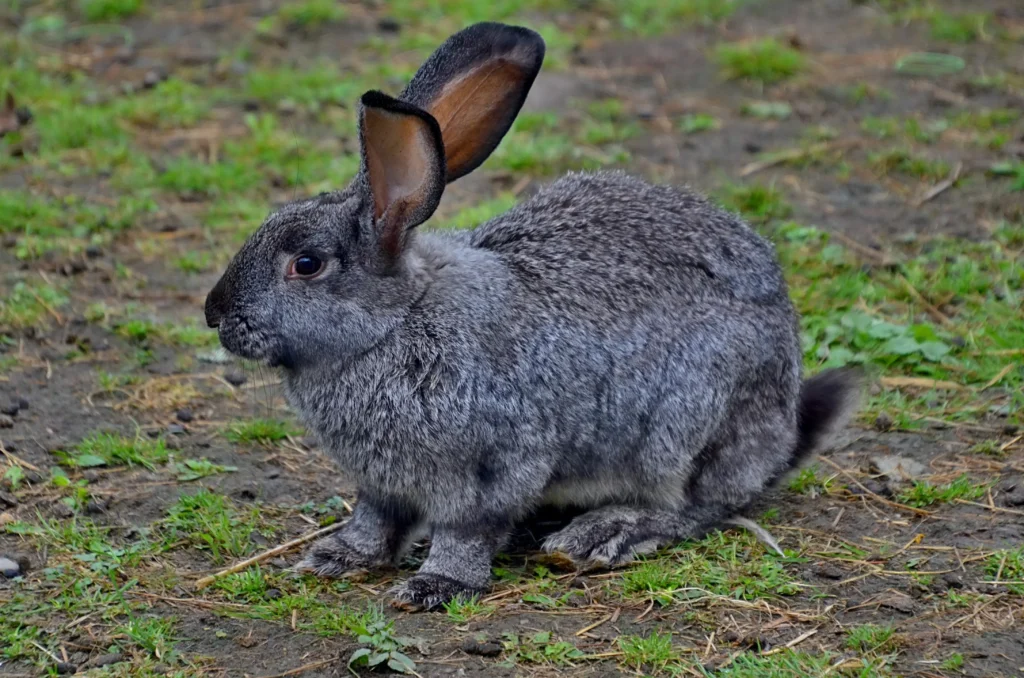
Conclusion
Implementing this comprehensive senior rabbit care guide will help ensure your aging bunny companion enjoys their golden years with dignity, comfort, and joy. Remember that every senior rabbit is unique, and care plans should be tailored to individual needs and circumstances. This senior rabbit care guide provides the foundation, but personalization is key to successful implementation.
The key to successful senior care lies in proactive monitoring, gradual adaptations, and maintaining open communication with your rabbit-experienced veterinarian. By following these seven essential tips and remaining attentive to your senior rabbit’s changing needs, you’re providing the foundation for a comfortable, enriching life during their most vulnerable years. Remember that implementing a senior rabbit care guide is an ongoing process that requires patience and dedication.
Regular assessment and adjustment of your care routine will help you stay ahead of age-related challenges while celebrating the special bond you share with your long-term companion. With proper implementation of this senior rabbit care guide, many senior rabbits continue to exhibit personality, affection, and joy well into their later years. This senior rabbit care guide serves as your comprehensive resource for navigating the unique challenges and rewards of caring for an aging bunny companion.
Frequently Asked Questions (FAQs)
At what age is a rabbit considered senior?
Most domestic rabbits are considered senior between 5-6 years of age, though this can vary by breed. Smaller breeds may show signs of aging earlier, while larger breeds might not exhibit senior characteristics until 7-8 years old.
How often should senior rabbits visit the veterinarian?
Senior rabbits should receive veterinary check-ups every 4-6 months rather than the standard annual visits for younger rabbits. This increased frequency allows for early detection and management of age-related health issues.
What are the most common health problems in senior rabbits?
The most common senior rabbit health issues include dental disease, arthritis, gastrointestinal problems, kidney dysfunction, and heart conditions. Regular veterinary monitoring helps detect these conditions early.
Should I change my senior rabbit’s diet?
Yes, senior rabbits often benefit from specialized senior pellets and may need dietary modifications based on their health status. Maintain unlimited Timothy hay, but consider softer vegetables if dental issues develop.
How can I tell if my senior rabbit is in pain?
Signs of pain in senior rabbits include decreased activity, hunched posture, reluctance to move, changes in eating habits, teeth grinding, and withdrawal from social interaction. Consult your veterinarian if you notice these signs.
Is it normal for senior rabbits to sleep more?
Yes, senior rabbits typically sleep more than younger rabbits and may be less active during their awake periods. However, sudden dramatic changes in sleep patterns should be evaluated by a veterinarian.
Can senior rabbits still live with younger rabbits?
Many senior rabbits do well with younger companions, but introductions should be carefully managed. The senior rabbit’s health status and stress levels should be monitored closely during any social changes.
How can I make my senior rabbit more comfortable at home?
Provide soft bedding, easily accessible food and water, multiple litter boxes, gentle exercise opportunities, and maintain consistent routines. Consider adding ramps or steps to help with mobility challenges.
What’s the average lifespan of a domestic rabbit?
Indoor domestic rabbits typically live 8-12 years, with proper senior care potentially extending their lifespan. Outdoor rabbits generally have shorter lifespans due to environmental hazards and stress.
When should I consider end-of-life care for my senior rabbit?
Quality of life assessments should guide these difficult decisions. If your senior rabbit no longer enjoys eating, socializing, or basic activities despite medical management, it may be time to discuss end-of-life options with your veterinarian.

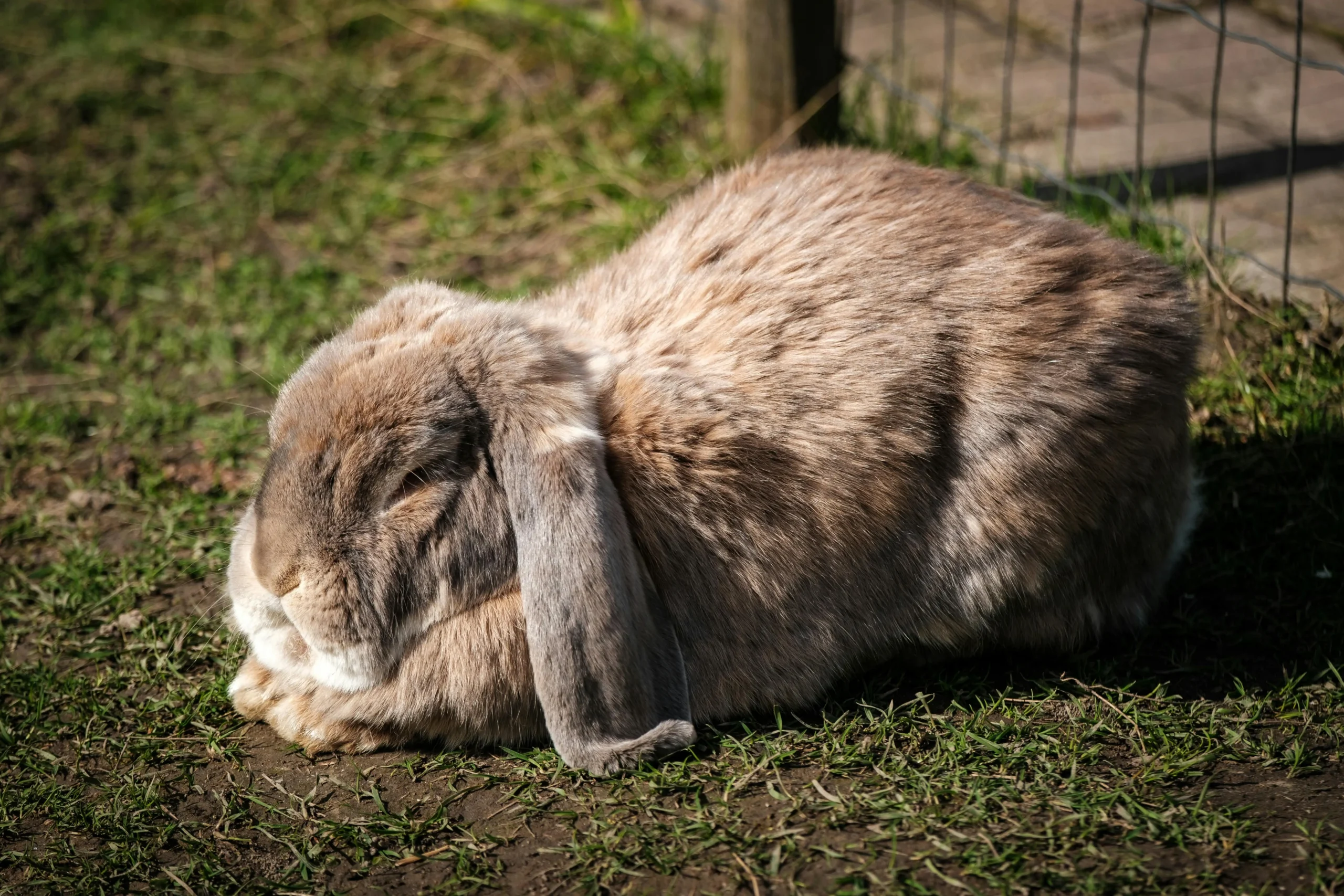

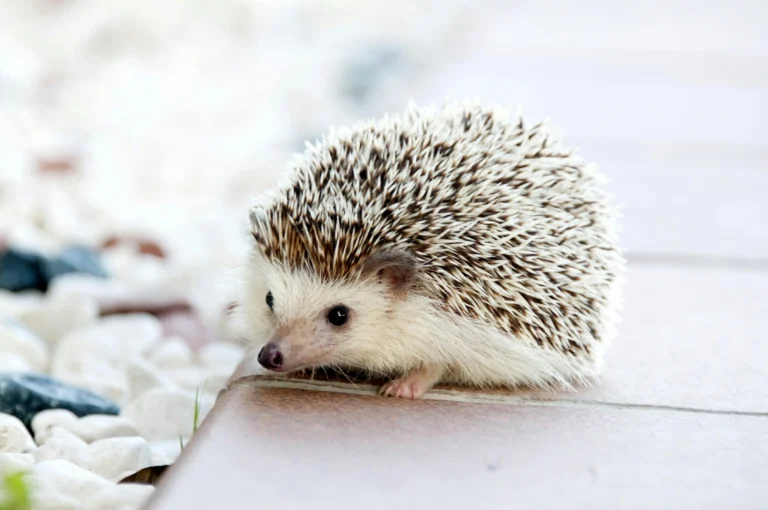

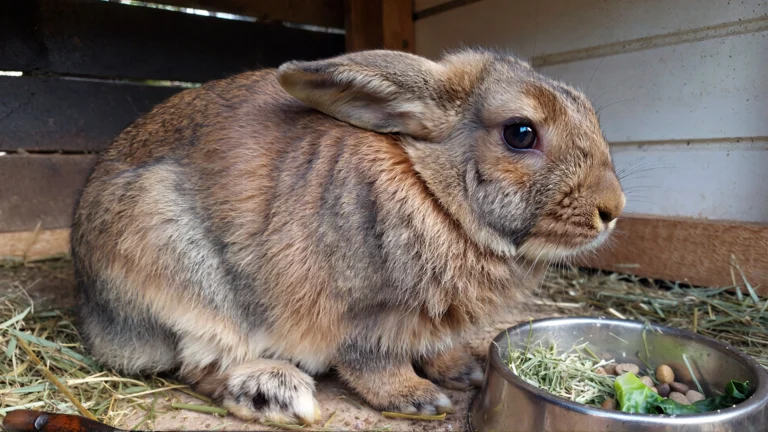
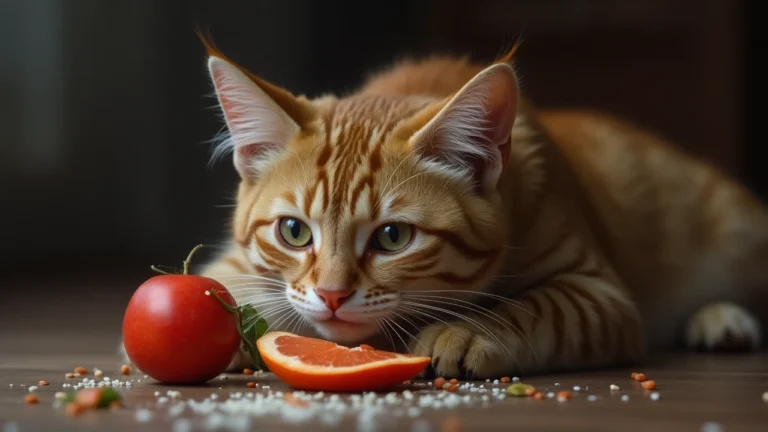

One Comment